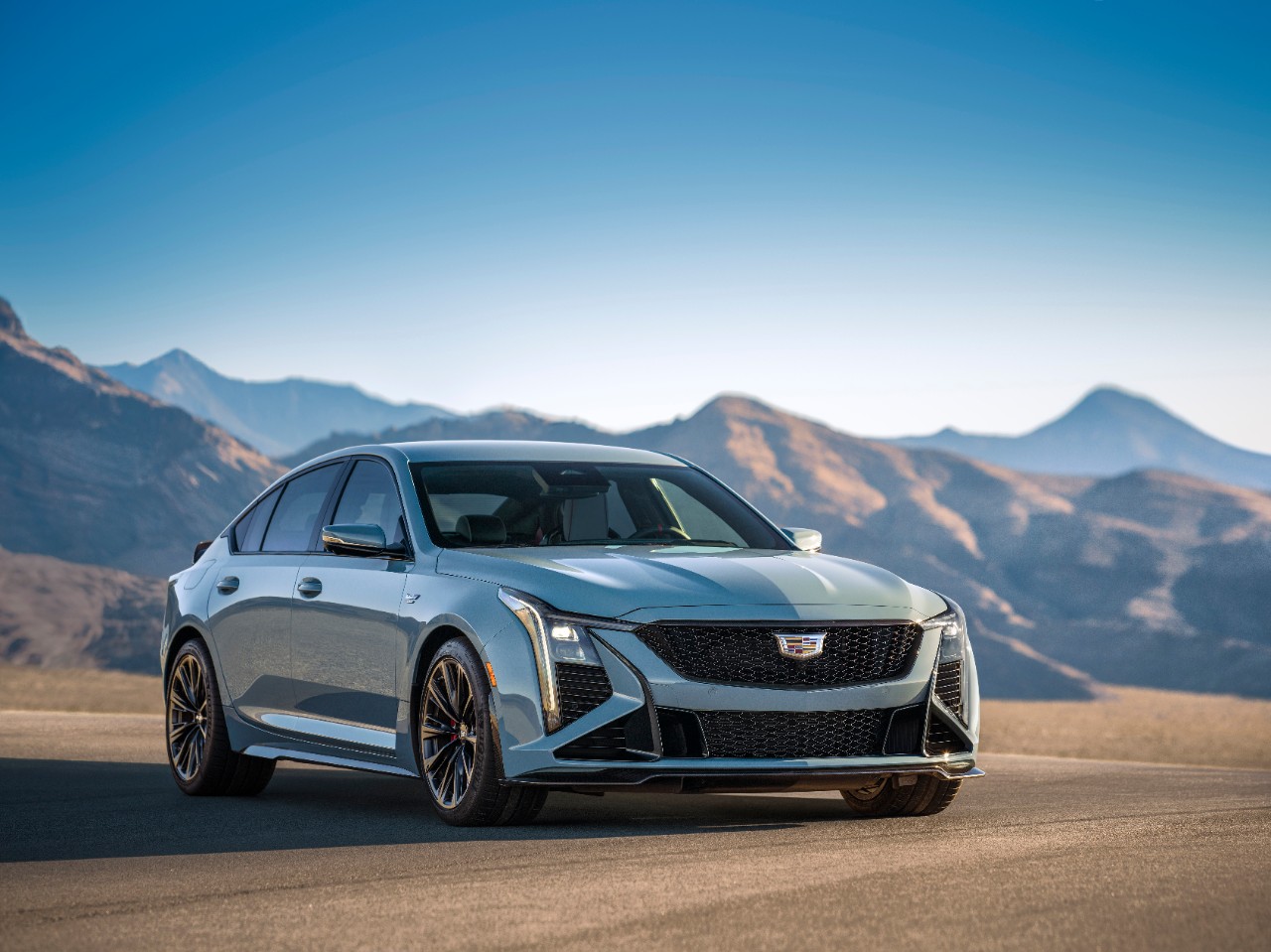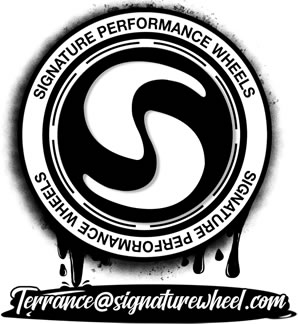jodakid69
Seasoned Member
DISCLOSURE:
Before I proceed, in full disclosure I am not a mechanic. I am providing a few limited data points, reporting on my vehicle's performance, and providing my personal analysis regarding the performance of my vehicle's brake system performance. The braking system of your vehicle is a very important safety system and I am NOT providing guidance regarding how you should maintain the braking system of your vehicle. GM which is the OEM of Cadillac CT4V-BW and CT5V-BW vehicles does not recommend the use of "non-GM approved" brake pads or rotors for your vehicle.
BRAKE VIBRATION ISSUE:
My CT4V-BW developed moderate vibration during light to moderate braking at the steering wheel. This situation started after the vehicle had about 4250 miles. During the prior 1000 miles, the vehicle had been used in 4 track day sessions that included heavy braking from speeds of 125MPH to 135MPH. After 3 track days using the stock pads, the front braking had developed a pulsation/vibration at the steering wheel during light to moderate braking. The vibration increased after my 4th track day which was only a half day. The vibration remained after I installed two new front tires - both street driving and during my 5th track day session. In total, I had the stock brake pads in use for 5700 miles which included 5 track days.
Upon inquiry, I was informed by two Cadillac dealers, and the Chevy Dealer that performed a brake pad replacement, that I likely needed new rotors. My intent was to replace the rotors after a total of 10 track days.
View attachment 20010 View attachment 20011
BRAKE PERFORMANCE REPORT:
After having EBC metallic sintered track brake pads installed in my CT4V-BW and using them for 1 track day - (5) 20-minute sessions, the brake vibration that I was experiencing after my prior last track sessions with the stock pads has gone away.
It appears that the demise of my stock rotors has been inaccurately and prematurely predicted!
I am now back to experiencing normal braking performance under light, moderate, and heavy brake pressure. My assessment is that since EBC brake track brake pads are metallic sintered brake pads that work off of straight pad surface-to-rotor friction rather than pad-to-rotor film, use of the EBC brake pads in multiple high-speed brake applications cleared off the surface film that was causing the vibration. Reference information provided in posting #7 of the "I've Found the Secret Sauce(track pads)" thread by ALMAZING regarding metallic sintered brake pads.
I am speculating that repeated hard braking which engages the anti-lock at 135-140MPH down to 80MPH using stock CT4V-BW pads, causes uneven surface deposits to form which in turn causes the brake vibration that is felt at the steering wheel. With the switch to the metallic sintered brake pads, the surface deposits quickly were worn away and the vibration problem went away. I cannot comment on steel or carbon rotor performance for CT5V-BW.
It is interesting that the brake tech that installed the EBC brake pads noted that there were minimal rotor surface problems when he installed the EBC track brake pads, but the braking vibration continued to occur after installing the EBC track brake pads. Note that simply installing new brake pads did not "fix" the brake vibration. Therefore, their assessment was that the vibration was caused by warped rotors. The metallic sintered brake pads need to be used in multiple high-speed braking sessions to wear off the old brake pad coating. My analysis is that if you installed the stock pad or other pads that are not metallic sintered pads to "fix" the vibration problem, the new pads would not correct the problem. In fact, the brake vibration problem would persist and the dealer's solution to the brake vibration issue would be to install new rotors.
I like the solution that I stumbled upon better!
In summary, my analysis is that CT4V-BW vehicles that have stock brake pads installed and experience repeated heavy braking from 120+ MPH will likely develop uneven brake pad deposits on rotors that will cause braking vibrations. The solution to this issue is to continue to use stock pads and replace rotors or use metallic sintered brake pads. It is also possible that there are other methods to clean off uneven brake pad deposits other than using metallic sintered brake pads.
A final note is that you will be trading rotor life when using metallic sintered brake pads for street driving. So you will need to determine the amount of track use versus street use for your vehicle when selecting brake pads for your vehicle, as well as guidance provided by the OEM and professional mechanics and repair shops.
Before I proceed, in full disclosure I am not a mechanic. I am providing a few limited data points, reporting on my vehicle's performance, and providing my personal analysis regarding the performance of my vehicle's brake system performance. The braking system of your vehicle is a very important safety system and I am NOT providing guidance regarding how you should maintain the braking system of your vehicle. GM which is the OEM of Cadillac CT4V-BW and CT5V-BW vehicles does not recommend the use of "non-GM approved" brake pads or rotors for your vehicle.
BRAKE VIBRATION ISSUE:
My CT4V-BW developed moderate vibration during light to moderate braking at the steering wheel. This situation started after the vehicle had about 4250 miles. During the prior 1000 miles, the vehicle had been used in 4 track day sessions that included heavy braking from speeds of 125MPH to 135MPH. After 3 track days using the stock pads, the front braking had developed a pulsation/vibration at the steering wheel during light to moderate braking. The vibration increased after my 4th track day which was only a half day. The vibration remained after I installed two new front tires - both street driving and during my 5th track day session. In total, I had the stock brake pads in use for 5700 miles which included 5 track days.
Upon inquiry, I was informed by two Cadillac dealers, and the Chevy Dealer that performed a brake pad replacement, that I likely needed new rotors. My intent was to replace the rotors after a total of 10 track days.
View attachment 20010 View attachment 20011
BRAKE PERFORMANCE REPORT:
After having EBC metallic sintered track brake pads installed in my CT4V-BW and using them for 1 track day - (5) 20-minute sessions, the brake vibration that I was experiencing after my prior last track sessions with the stock pads has gone away.
It appears that the demise of my stock rotors has been inaccurately and prematurely predicted!
I am now back to experiencing normal braking performance under light, moderate, and heavy brake pressure. My assessment is that since EBC brake track brake pads are metallic sintered brake pads that work off of straight pad surface-to-rotor friction rather than pad-to-rotor film, use of the EBC brake pads in multiple high-speed brake applications cleared off the surface film that was causing the vibration. Reference information provided in posting #7 of the "I've Found the Secret Sauce(track pads)" thread by ALMAZING regarding metallic sintered brake pads.
I am speculating that repeated hard braking which engages the anti-lock at 135-140MPH down to 80MPH using stock CT4V-BW pads, causes uneven surface deposits to form which in turn causes the brake vibration that is felt at the steering wheel. With the switch to the metallic sintered brake pads, the surface deposits quickly were worn away and the vibration problem went away. I cannot comment on steel or carbon rotor performance for CT5V-BW.
It is interesting that the brake tech that installed the EBC brake pads noted that there were minimal rotor surface problems when he installed the EBC track brake pads, but the braking vibration continued to occur after installing the EBC track brake pads. Note that simply installing new brake pads did not "fix" the brake vibration. Therefore, their assessment was that the vibration was caused by warped rotors. The metallic sintered brake pads need to be used in multiple high-speed braking sessions to wear off the old brake pad coating. My analysis is that if you installed the stock pad or other pads that are not metallic sintered pads to "fix" the vibration problem, the new pads would not correct the problem. In fact, the brake vibration problem would persist and the dealer's solution to the brake vibration issue would be to install new rotors.
I like the solution that I stumbled upon better!
In summary, my analysis is that CT4V-BW vehicles that have stock brake pads installed and experience repeated heavy braking from 120+ MPH will likely develop uneven brake pad deposits on rotors that will cause braking vibrations. The solution to this issue is to continue to use stock pads and replace rotors or use metallic sintered brake pads. It is also possible that there are other methods to clean off uneven brake pad deposits other than using metallic sintered brake pads.
A final note is that you will be trading rotor life when using metallic sintered brake pads for street driving. So you will need to determine the amount of track use versus street use for your vehicle when selecting brake pads for your vehicle, as well as guidance provided by the OEM and professional mechanics and repair shops.





